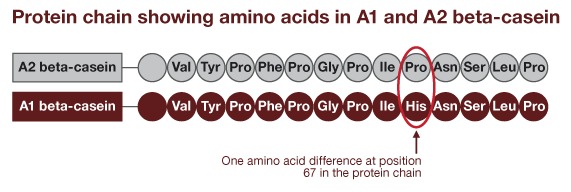An ISO 9001: 2015 Certified Company
 Order NowPh : +91 9148747401, +91 9880911648
Order NowPh : +91 9148747401, +91 9880911648
An ISO 9001: 2015 Certified Company
 Order NowPh : +91 9148747401, +91 9880911648
Order NowPh : +91 9148747401, +91 9880911648




In the recent years A1 and A2 type milk has emerged as one of the hot debating topic among the consumers worldwide. Studies suggest that milk from cows with A2 type are far healthier than their A1 counterparts.
BBS is well versed in identifying the allelic types of Desi Indigenous A2 type cows and A1 type or A1/A2 type beta casein milk producing cows using DNA sequencing.
Milk from dairy cows has been regarded as nature’s perfect food, providing an important source of nutrients including high quality proteins, carbohydrates and selected micronutrient’s. More than 95% of the cow milk proteins are constituted by caseins and whey proteins. Among the caseins, β- Casein is one of the major proteins in milk of cows, buffaloes and other mammals.
Research studies have shown that there are different variants of β -casein in milk evolved over hundreds of years due to mutation and selective breeding for high milk and protein yields.
There are 15 known variants of β -casein out of which A1 and A2 are major. β-casein-A1 (alleged bad casein) differs from A2-casein only by one amino acid at position 67 (proline in A2 and histidine in A1). This substitution increased susceptibility of A1 β-casein to hydrolysis by digestive enzymes to produce physiologically active β-casomprohin (BCM), a decapeptide.

It is a difference in the protein in the milk. While A2 is healthy, A1 inflammatory and is not tolerated by many people. High milk yielding cows have A1 casein while goats, buffaloes and some low yielding cows got A2. A1 milk belongs to a cross breed cows whereas A2 milk belongs to pure indigenous Indian cows.

© 2022 Barcode Biosciences Private Limited. All Rights Reserved.
Maintained by: swaragh.com